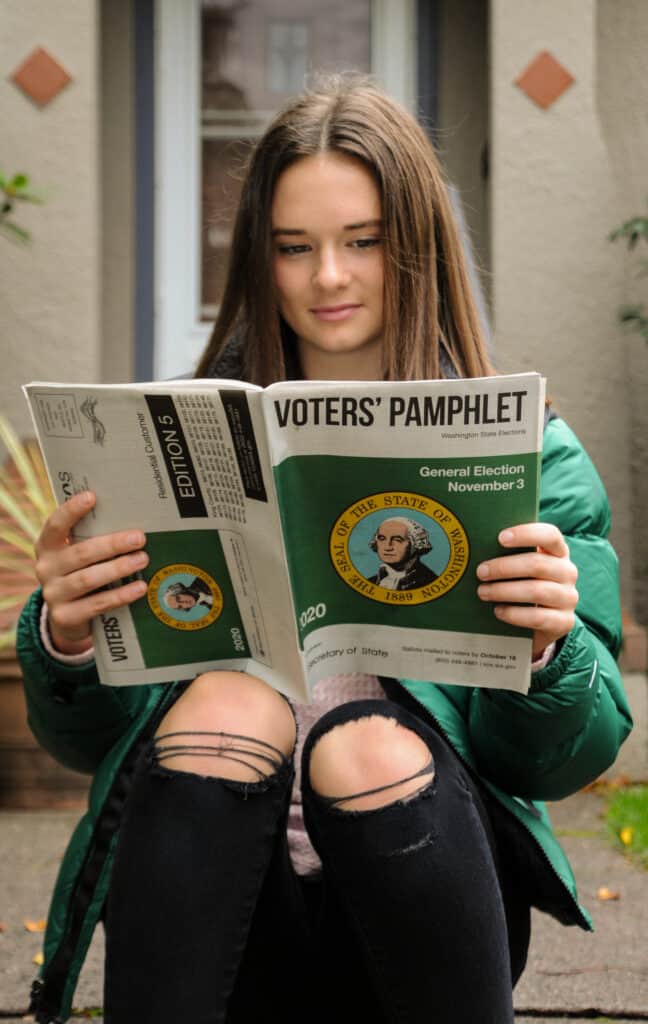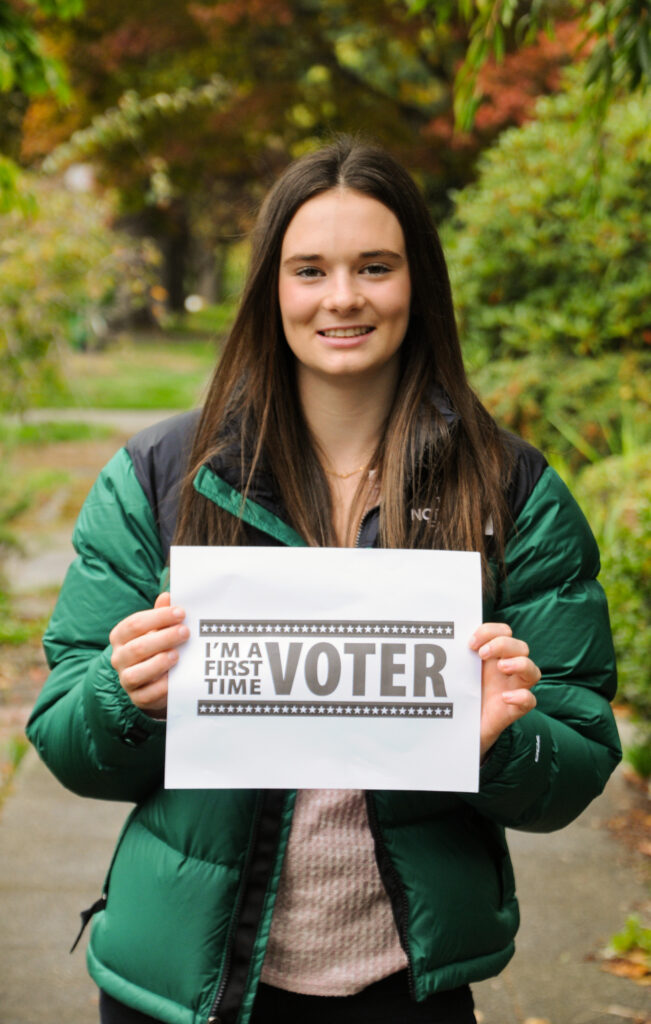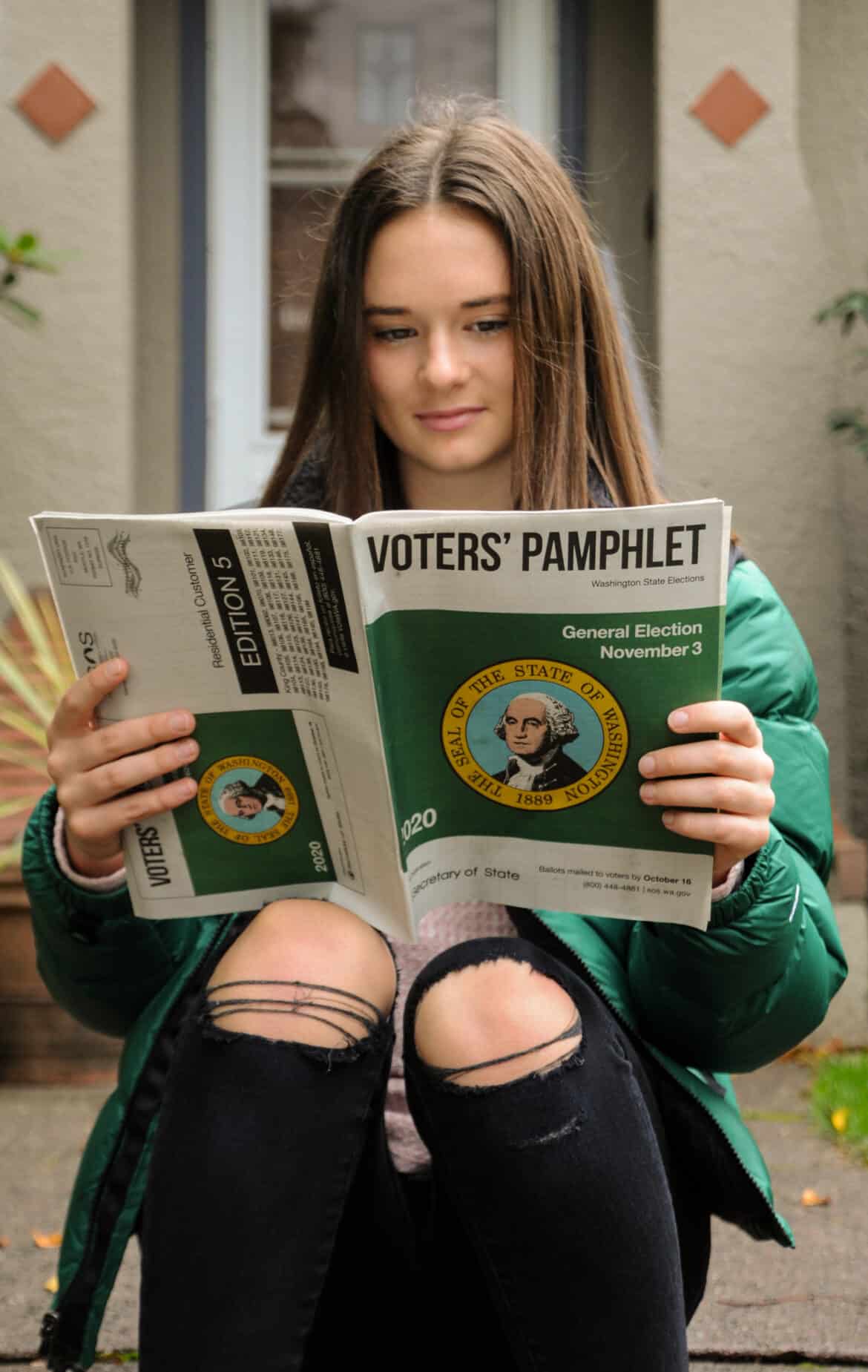As the days of October fly past, we are rapidly approaching the climax of arguably the most important presidential election in recent history. Elections are centered around one thing: getting votes, and one of the largest voter bases in America is the massive group of adolescents who will be eligible to vote for the first time.

RHS Senior Claire Eggleston reads a Voter’s Pamphlet. 
RHS Senior Claire Eggleston holds a “I’m a first time voter” sign.
This is not any routine election either. With a culmination of unique circumstances that are prompting many in the nation to become more politically active, we could see some of the largest voter participation numbers from first-time voters. These voters will have a significant impact on any election, and with a tight race predicted between the two candidates, they may well have the power to decide it. But who are some of these first-time voters, what do they believe, and most importantly, why?
When surveyed about their preparedness for the impending election, 95% of first-time voters believed that they were completely or very knowledgeable about the candidates and knew who they were going to vote for. When asked about the ways in which he prepared for this election, Schamharr, a freshman at Gonzaga University, said that “most of my political influence comes from my parents; I would like to say that I learned more from the debates, but that just isn’t true. Watching some of the earlier Democratic debates helped me learn more about those candidates, however.”
This is a very common answer, presumably because many first-time voters either live with their parents or have done so recently. However, Graham Peterson, a freshman at the University of Washington, says his information and intuition comes more prominently from other sources. “For starters, I took a government class, so I would say I know the inner workings of government better than the average American. I do tend to read a lot of news; I follow the AP on Twitter – I tend to get my information from reportedly unbiased media outlets.”
With so much influence from social media, parents, and our school system, many of these first-time voters believe they are not walking into a completely new world. In fact, there was only one policy question on the survey that received a majority in the neutral category, indicating greater political awareness across the board. But how has this renewed sense of political activism tilted the viewpoints of this incoming voter base?
60% of the people surveyed believed that the Green New Deal was an absolute necessity. When asked why the proposal is seen so favorably, Claire Eggleston said, “I don’t know a ton about it, but I think that the environment and climate in general is a necessity. Especially with Trump backing out of the Paris accord, I think we need to do everything we can to make up for that and get back on the right track.”
When it came to other policies, 70% see the adoption of universal healthcare as an absolute necessity or close to it, 46% are in favor of a law banning hate speech (with only 28% opposed), and there was an even split when it came to raising or lowering taxes. These are all some hallmark indications of where this voter base, at least locally, stands on the big issues we’re likely to see addressed by incoming legislation.
So, what does this tell us? The people surveyed live in an area that leans more liberal than America as a whole, so the natural division on these topics is expected. Nonetheless, this is still relevant information to predict the future of local and national politics and the direction it is heading. These new voters are likely to remain active participants for the rest of their lives, and will greatly impact the agenda we see pushed.
